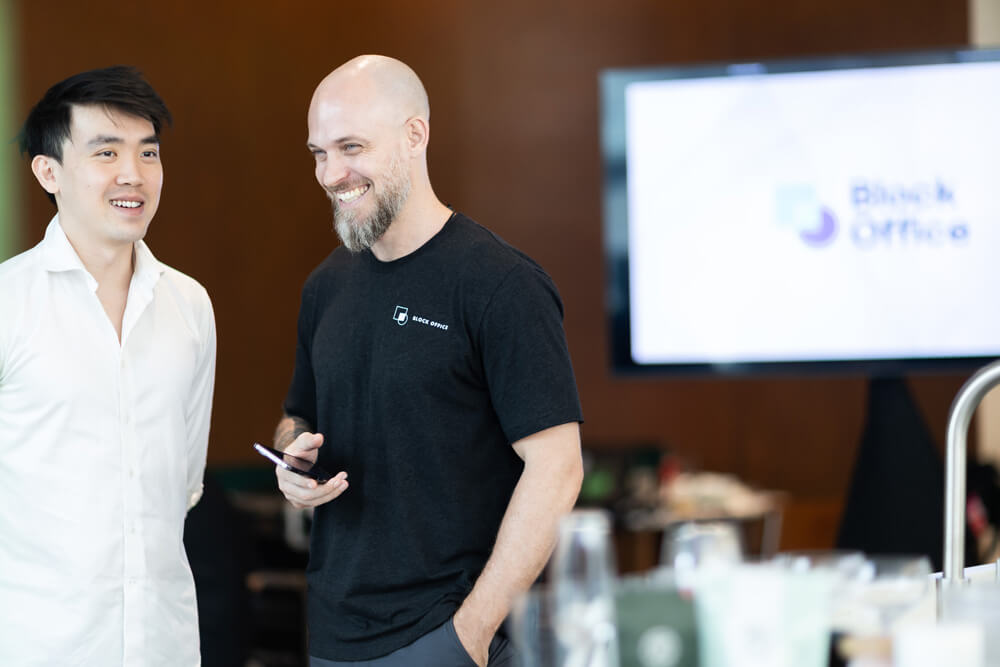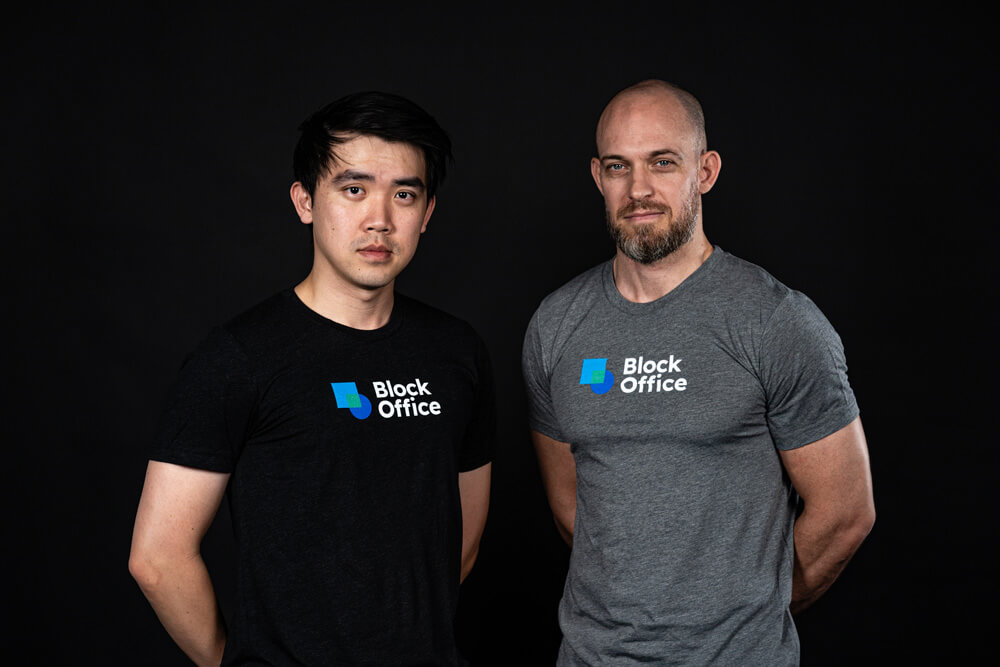In an exclusive interview with The Executive Magazine, Jay Lim, Founder and CEO of BlockOffice, reveals how his Singapore-based financial services platform is revolutionising the back-office landscape for Web3, AI, and gaming startups. With an impressive $4 million in revenue and over 400 clients acquired in just its first year, BlockOffice has rapidly positioned itself as a formidable challenger to traditional consulting models that have long dominated corporate financial services.

As BlockOffice expands into the American market, Lim shares invaluable insights on navigating complex regulatory environments, deploying effective fundraising strategies, and leveraging fractional executive talent. This candid conversation offers readers a rare glimpse into the financial infrastructure powering today’s most innovative sectors, while revealing Lim’s forward-thinking vision for how AI will transform financial operations in the years ahead. For business leaders seeking to understand the evolving dynamics of startup finance and cross-border growth strategies, Lim’s practical wisdom proves both timely and instructive.
BlockOffice has achieved impressive growth with $4 million in revenue and over 400 clients in its first year. What key gap in the market did you identify that traditional service providers were failing to address for Web3, AI, and gaming startups?
“Traditional firms operate with static playbooks built for legacy industries. But Web3, AI, and gaming startups face dynamic regulatory landscapes, token-based business models, and fast go-to-market demands. We built BlockOffice to serve these emerging sectors with speed, precision, and domain fluency. Startups in these spaces need to look forward and build their vision— We are their partner who looks after their back(backoffice), sharing best practices in financial incentives (tokenomics, margins, referral fees/airdrops), cross-border structuring for taxes and regulation. By freeing up headspace for our clients, they are able to execute better. That’s where we found the gap.”

Your expansion into the US market comes at what you describe as “a pivotal time of crypto-forward policy.” How do regulatory environments across different jurisdictions impact your service offerings, and what unique challenges do your US clients face compared to those in Singapore?
“The regulatory gap between Singapore and the U.S. is significant. Singapore is clear, efficient, and relatively progressive when it comes to crypto and tech-forward regulation. In contrast, the U.S. is still navigating ambiguity, especially with SEC oversight on digital assets. For our U.S. clients, this creates complexity in fundraising, token issuance, and treasury management. We help them mitigate risk by setting up entity structures or operating through regulatory-friendly jurisdictions like BVI or Dubai. Our strength lies in giving clients optionality in uncertain environments.”
The fractional executive model is gaining significant traction, with Deloitte reporting 25% of businesses adopting fractional hiring in 2025. How does BlockOffice’s approach to fractional CFO and CTO services differ from traditional consulting models?
“Most consulting firms offer theoretical advice. We provide execution too as a one stop solution. Our fractional executives don’t just provide decks, they plug directly into the startup’s ops, aligning with KPIs and driving real outcomes and we prepare the mundane manual reports for their investor as well as their end of year filings. We’ve standardized playbooks for early-stage companies, from financial modeling to tech roadmaps, while still offering bespoke adjustments. And because we’ve worked across 400+ startups within a year and we bring pattern recognition and benchmark data that solo consultants simply can’t match.”

BlockOffice has made strategic acquisitions of Pixel8Labs and WhitepaperAuditor to enhance your Web3 capabilities. How do these additions fit into your vision of becoming a full-stack partner for crypto-native startups?
“Pixel8Labs brings deep product and UX capabilities, helping startups turn whitepaper concepts into usable MVPs. WhitepaperAuditor, on the other hand, enhances our credibility layer, ensuring token models, governance mechanisms, and economic assumptions are bulletproof. Together, they help us serve clients from ideation to launch: incorporation, product, token design, marketing, treasury setup, and investment—all under one roof. This is crucial for crypto founders who need to move fast and can’t afford fragmented service providers.”
The startups supported by BlockOffice have collectively raised over $500 million. What financial strategies have proven most effective for your early-stage Web3 and AI clients during their fundraising journeys?
“In volatile markets, clarity and confidence win. The most effective strategy has been precision: a clear go-to-market plan, lean financials, and investor-ready narratives. We help clients forecast burn multiples, integrate token and equity economics, and structure cross-border legal stacks to fit investor expectations. We’ve also seen success in offering flexible instruments like SAFEs with token warrants, which appeal to both equity and crypto-native investors.”
Through BlockOffice Ventures, you’re not just a service provider but also an investor. How does this dual relationship benefit the startups you work with, and what investment criteria guide your capital deployment decisions?
“Most of the sales team had careers in investment banking and private equity. By investing, it aligns us with our top clients. As both a service provider and investor, we’re in a privileged position—we work closely with founders before we invest, which gives us real insight into how they operate and manage capital. Our clients trust us more this way, just like how key employees in a company is sometimes rewarded with ESOP. With trust, communication is clean and effective. When we do invest, we’re not just writing a check—we’re bringing execution support, which makes us highly aligned growth partners. Our investment decisions are guided by the team quality based on benchmarking across all our clients and pipeline. Additionally, by building their financial backoffice, this gives us advantage in due diligence capabilities and first dips in the best companies.”
The Big 4 accounting firms have dominated corporate financial services for decades. What fundamental innovations in your business model allow you to deliver comparable quality while maintaining the agility that startups require?
“Our model is modular and tech-enabled. Unlike Big 4 firms, we don’t bind clients to fixed, multi-month retainers. We offer scalable packages—from incorporation-only to full-stack operations. We’ve also built internal tools for financial modeling, onboarding, and real-time reporting, which cut down inefficiencies and cost. And most importantly, our team is built like a startup: global, async, and execution-first. That DNA lets us move 5x faster than traditional firms yet charging less than branded firms as they have to offset their high overheads.”
Global incorporation is a key service you offer across Singapore, Dubai, BVI, and other jurisdictions. What considerations should startup founders prioritise when selecting their incorporation strategy in today’s digital economy?
“They need to reverse-engineer their structure based on their capital stack and go-to-market plan. Where are their investors based? Will they issue tokens? Are they planning an exit? For example, a Web3 project might use a BVI Foundation for token issuance and a Singapore OpCo for operations. Meanwhile, a U.S.-focused AI startup may benefit from a Delaware C-Corp. Incorporation isn’t one-size-fits-all—it’s a strategic decision that affects everything from fundraising to taxes to M&A.”
You’ve built BlockOffice to profitability during a challenging economic period. What financial management principles have you applied to your own company that you also recommend to your clients?
“Ambitions are frothy dreams without proper financial planning. We built BlockOffice with profitability in mind from Day 1. That meant strict hiring processes, revising margins regularly, KPI tracking, and aligning incentives across teams and external partners. For clients, we always recommend tracking runway, building realistic forecasts, and staying lean. Financial clarity isn’t just for the CFO, it needs to live in every decision the team makes.”
Looking ahead five years, how do you see the relationship between AI advancement and financial operations evolving, and how is BlockOffice positioning itself to lead this transformation?
“AI will shift financial ops from reactive to predictive. Instead of reporting what happened, we’ll forecast what’s likely to happen, and course-correct in real time. We’re already experimenting with AI in anomaly detection, revenue forecasting, and treasury management. Long-term, we see AI as a co-pilot for CFOs and operators, not a replacement. BlockOffice is investing in that future by integrating AI tooling into our service stack and training our team to lead with it.”


